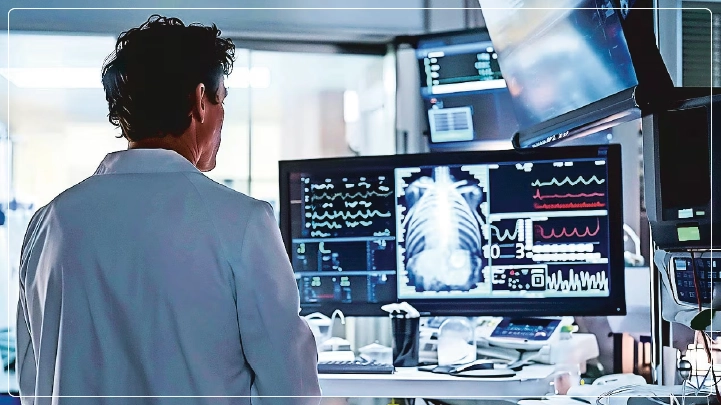AI-Powered Diagnostics to Accelerate Lung Cancer Detection
Lung cancer claims more lives than any other cancer type in the world, with 2.4 million new incidences and 1.8 million deaths every year. Standard diagnostic techniques such as chest X-rays often require the interpretation of an expert, which increases the chances for either a delayed diagnosis or an outright missed diagnosis.

With advancements in AI for chest X-ray analysis, Qure.ai's qXR tool provides quick and accurate diagnoses. In this initiative, Qure.ai is collaborating with AstraZeneca for further enhancement of lung cancer screening while bringing better outcomes via AI.
Qure.ai’s AI Solution for Lung Cancer Screening
Cure.ai is a health tech company in Bengaluru that developed qXR: artificial intelligence chest x-ray interpretation for radiologists and clinicians to detect abnormality features such as lung nodes that could suggest early-stage cancer in the lungs. qXR is most widely adopted around the world for AI-assisted and fully automated reporting in chemistry, pre-read for less than a minute, and configured with comprehensive lung results. It detects and localizes more than 30 abnormalities of chest X-rays while directing the attention of the radiologists toward the most abnormal ones.
It's a revolution in detecting lung nodules from normal routine chest pictures as most of the nodules tend to get missed out in non-oncological settings. AstraZeneca has also played a vital part as a founding member of the Lung Ambition Alliance in increasing screening rates and improving diagnostic accuracy for lung cancer detection and treatment. Lung cancer is the fourth most common cancer and among the top five causes of cancer deaths in India. AstraZeneca is working with the International Association for the Study of Lung Cancer, the Global Lung Cancer Coalition, and Guardant Health to innovate in detection and management solutions for lung cancer.
Expanding AI-Powered Screening Across India and Beyond
Besides revolutionizing world medicine through its qXR tool, the company also promises to improve early detection rates and ultimately decongest healthcare systems. Deployed in over 3,000 sites across the globe, including AIIMS Delhi and AIIMS Bhopal, it has been a boon for India's healthcare system, screening more than 2.1 million people across 335 health facilities. Qure.ai has collaborated with various state governments in rolling out lung cancer screening programs under qXR across 10-18 government hospitals in Goa, Karnataka, and Jammu & Kashmir.
It's able to interface with the existing healthcare infrastructure, allowing direct connection to X-ray machines or integration with Picture Archiving and Communication Systems (PACS). It also incidentally detects lung nodules even through chest X-rays taken for other reasons. Artificial Intelligence is crucially involved in predicting lung cancer risk as well, making a better prediction regarding risks among patients with incidental pulmonary nodules. AstraZeneca is collaborating with leading institutes in India to assess the cost-effectiveness of low-dose CT scans for lung cancer screening to evaluate the clinical and economic effects of delaying lung cancer screenings in high-risk populations.
Global Expansion and Future Goals
While Qure.ai works towards global expansion by the following year and aims to see a minimum of 1,000 lung cancer cases diagnosed each year-25% in its early stages company wishes to ensure lung cancer screening is made available across the world by embedding AI into routine chest X-rays. AI-based technologies such as qXR are disruptive technologies for lung cancer diagnosis; they aid in faster and better detection. Qure.ai and AstraZeneca, partnering in this endeavor, hope to mainstream AI-based lung cancer screening. As the adoption of AI grows, increased adoption in healthcare will usher in a definitive era of diagnostic accuracy, improved patient outcomes, and a future where lung cancer can be caught in time and offered effective treatment.